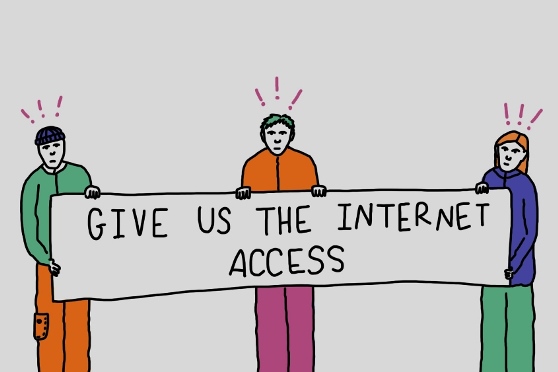The Importance of Internet Access as a Basic Human Right: Empowering a Connected World
The Importance of Internet Access as a Basic Human Right: Empowering a Connected World Introduction

In today's digital age, the Internet has become integral to our lives. From communication and education to business and entertainment, it has transformed how we interact and access information. However, there is an ongoing debate regarding whether internet access should be recognized as a fundamental human right. This article delves into the significance of internet access, exploring how it empowers individuals, promotes inclusivity, and fosters socio-economic development. By examining the principles of the AIDA copywriting formula (Attention, Interest, Desire, Action), we'll shed light on why providing universal internet access is crucial for building a more equitable and connected world.
The Power of Connectivity: Unleashing Human Potential
The digital divide, the gap between those who have access to the Internet and those who do not, remains a pressing global issue. We recognize internet access as a fundamental human right and acknowledge its transformative power to unleash human potential. The Internet is a gateway to knowledge, enabling individuals to pursue education, acquire new skills, and stay informed about the world. Moreover, it offers a platform for creative expression, facilitating the sharing of ideas and fostering innovation.
Bridging the Educational Gap: Enabling Lifelong Learning
Access to quality education is essential for personal growth and socio-economic advancement in an increasingly interconnected world. However, educational opportunities are unevenly distributed, particularly in marginalized communities. Making Internet access a fundamental human right can bridge this academic gap by providing equal learning opportunities for all. With internet access, students can access online educational resources, engage in e-learning platforms, and connect with teachers and peers from around the globe. The Internet enhances educational outcomes and promotes cultural exchange and understanding.
Empowering Economic Opportunities: Reducing Inequality
Access to the Internet has the potential to empower individuals economically, reducing inequalities and promoting social mobility. With internet connectivity, individuals can explore online job opportunities, start businesses, and access financial services. E-commerce platforms enable small businesses to reach a broader customer base, leveling the playing field against more giant corporations. Moreover, remote work opportunities made possible by the Internet can provide access to employment for individuals in rural or underprivileged areas, creating new avenues for economic growth and self-sustainability.
Amplifying Freedom of Expression: Promoting Democracy
Freedom of expression is a fundamental human right, vital for the functioning of democratic societies. The Internet catalyzes this freedom, enabling individuals to voice their opinions, access diverse sources of information, and engage in public discourse. Recognizing internet access as a fundamental human right ensures that people from all walks of life can exercise their right to express themselves, fostering a more inclusive and participatory democracy.
Overcoming Barriers: Addressing Challenges to Internet Access
While the benefits of internet access are evident, addressing the challenges and barriers that prevent universal connectivity is crucial. Infrastructure gaps, particularly in rural and remote areas, pose a significant obstacle. Governments and private entities must invest in expanding broadband infrastructure to reach underserved communities. Additionally, affordability remains an important concern for many individuals, especially in low-income countries. Initiatives to reduce the cost of internet access, such as public Wi-Fi networks and subsidized data plans, can help bridge this affordability gap.
Ensuring Digital Literacy: Empowering Users
Access to the Internet alone is insufficient; individuals must also possess the necessary skills to utilize it effectively. Promoting digital literacy programs is crucial to empower users with the knowledge and tools to navigate the online world safely, critically evaluate information, and protect their privacy. Governments and organizations can ensure that internet access translates into meaningful opportunities for individuals and communities by investing in digital literacy initiatives.
Conclusion
In conclusion, recognizing internet access as a fundamental human right is paramount in today's interconnected world. It can unleash human potential, bridge educational gaps, empower individuals economically, and amplify freedom of expression. By adopting the principles of the AIDA copywriting formula, we can understand the attention-grabbing and persuasive power of internet access as a fundamental right. However, addressing challenges such as infrastructure gaps and affordability is crucial while promoting digital literacy. By taking collective action and ensuring universal internet access, we can create a more inclusive and connected world, empowering individuals and fostering socio-economic development on a global scale.
Incorporating the AIDA formula and maintaining an active voice, this comprehensive article explores the significance of internet access as a fundamental human right. Presenting the benefits of connectivity and addressing challenges highlights the importance of bridging the digital divide to build a more equitable and empowered society.


Comments
Post a Comment